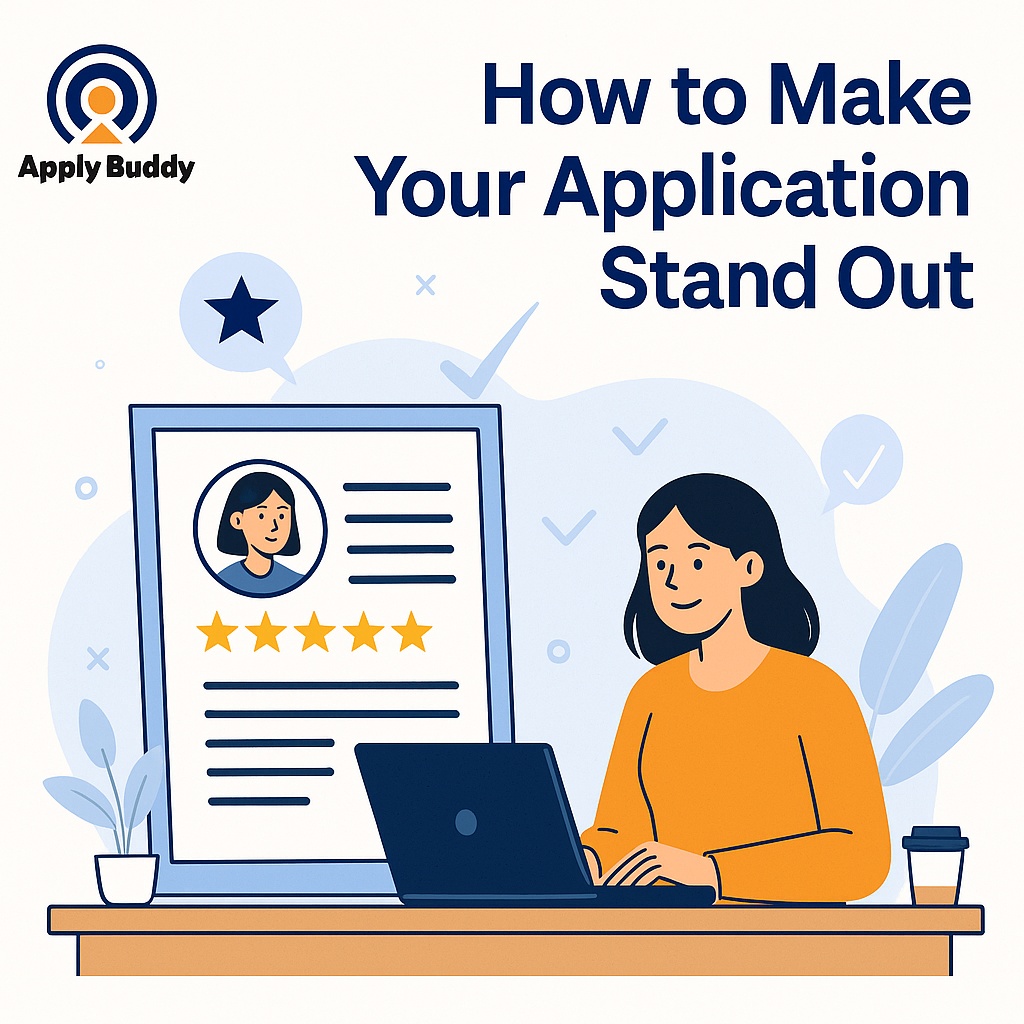Finding a job after graduation in the UK can feel both exciting and overwhelming. You’ve worked hard for your degree, and now it’s time to turn that effort into a rewarding career.
Yet, stepping into the UK job market can be daunting when you’re unsure where to start, which industries are hiring, or how to stand out among thousands of graduates with similar qualifications.
But here’s the good news: you’re not alone. Every year, thousands of new graduates successfully transition from campus life into full-time employment.
What makes the difference? It’s not just your grades or university ranking, but how well you prepare, position yourself, and present your skills during your job search journey.
In this blog, I’ll walk you through practical strategies, expert-backed insights, and actionable steps to help you master finding a graduate job in the UK. Ready to get started? Let’s dive in.
Why Finding a Job After Graduation in the UK Can Be Challenging

Finding a job after graduation in the UK can be a rewarding journey, but it often comes with unique hurdles. The shift from university life to the professional world can feel sudden, especially when you’re unsure how to navigate the fast-paced UK job market.
Many graduates quickly discover that securing a role requires more than just a polished degree. It takes strategic planning, the right resources, and a clear understanding of what UK employers truly value in new talent.
The Competitive UK Graduate Job Market

The UK graduate job market is exciting, but it’s also one of the toughest to break into. Thousands of graduates enter the workforce every year, all aiming for similar roles in top organisations.
For instance, the Institute of Student Employers reports that UK employers now receive an average of 140 applications per graduate vacancy, showing just how fierce the competition can be. Employers now value more than academic achievements; they seek candidates who show initiative, adaptability, and genuine industry knowledge.
Here’s the deal: to stand out, you need more than a strong degree. You need strategy, confidence, and a clear plan.
Common Mistakes Graduates Make When Job Hunting
Many graduates start their job search with excitement, but often miss the finer details that make all the difference. The truth is, even small missteps can hold you back from landing your ideal role in the UK. Let’s look at some of the most common errors and how to avoid them.
- Using the Same CV for Every Application
One of the biggest mistakes is sending out a generic CV. UK employers value tailored applications that match the job description. You can always adjust your CV to highlight relevant skills and experiences for each role. - Ignoring the Power of a Personalised Cover Letter
Some graduates skip this step entirely, thinking their CV will speak for itself. But a well-written cover letter can show passion and personality, traits that help you connect with hiring managers on a deeper level. - Not Researching the Company Thoroughly
Employers can tell when an applicant hasn’t done their homework. Learn about the company’s culture, values, and current projects before applying or interviewing. - Applying Without Meeting Core Requirements
It’s tempting to apply for every available job, but spreading yourself too thin can be counterproductive. Focus instead on roles that match your strengths and potential for growth. - Neglecting Online Presence
Your LinkedIn profile often serves as your digital CV. Failing to update it or align it with your professional goals can cost you valuable opportunities.
Best Ways to Find a Job After Graduation in the UK

Finding a graduate job in the UK is all about working smarter, not harder. You don’t need to send out hundreds of applications hoping one sticks; you just need a clear plan and the right tools. Let’s explore some of the best strategies that truly work.
Use UK Graduate Job Boards and Recruitment Agencies
Start by browsing trusted graduate job boards for the UK, such as Prospects, TargetJobs, and Graduate Talent Pool.
These platforms list verified roles and often provide free resources to help with applications. Recruitment agencies can also connect you with employers who are actively hiring for entry-level jobs for graduates in the UK.
Leverage LinkedIn and Networking Effectively
Networking remains one of the most powerful ways to secure opportunities. Engage with alumni, join professional groups, and post updates that showcase your interests.
Many employers scout for candidates directly on LinkedIn, so keep your profile optimised and aligned with your career goals.
Apply to Graduate Schemes vs Entry-Level Roles
UK graduate schemes in 2025 offer structured training, mentorship, and career progression, but competition is fierce. Entry-level roles, on the other hand, might not offer formal training but can help you gain quick experience and grow into higher positions faster.
How to Make Your Application Stand Out

Making your application stand out in the UK job market takes more than meeting the job description. It’s about showing employers that you understand what they need and proving you can deliver value from day one.
To do that, you must go beyond the basics of submitting a CV and cover letter. Your documents should tell a story that highlights your strengths, showcases your achievements, and connects your experiences to the company’s goals.
Tailoring Your CV for UK Employers
A well-tailored CV can transform your chances of finding a job after graduation in the UK. Recruiters want to see more than just what you’ve studied; they want proof that you can bring measurable value to their team.
Here’s how you can achieve that:
- Match keywords from the job advert. UK employers often use Applicant Tracking Systems, so using the same language in your CV helps you pass automated screenings.
- Show results, not responsibilities. Replace phrases like “responsible for” with “achieved,” “delivered,” or “improved.” Add numbers metrics where possible to show tangible impact.
- Keep formatting clean and professional. Stick to UK standards, two pages max, clear headings, and reverse chronological order.
- Add a brief personal statement. Summarise your career goals and why you’re applying, using a confident and authentic tone.
If you’d prefer expert guidance, Apply Buddy offers tailored CV optimisation services designed to help graduates secure their first job in the UK faster. Their team ensures your CV meets employer expectations, passes ATS checks, and positions you as a strong fit for your chosen field.
Writing Persuasive Cover Letters
A persuasive cover letter connects your skills to the employer’s needs in a personal and authentic way. It gives you the chance to share your enthusiasm and explain how your experiences align with the company’s goals.
Keep it short and focused on impact rather than repeating your CV. Use clear examples that show your achievements and demonstrate how you can contribute to the organisation’s success.
Showcasing Transferable Skills and Internships
UK employers appreciate graduates who can turn their academic experiences into practical value. Whether it’s teamwork from group projects or problem-solving from coursework, these transferable skills show that you’re ready for the workplace.
Highlight internships, placements, or volunteer roles that demonstrate initiative and adaptability. Focus on clear achievements such as meeting targets, improving processes, or supporting team goals to show your real impact.
Alternative Pathways for UK Graduates

Not every graduate follows a traditional route into full-time employment. Some choose to explore flexible options that help them build experience and confidence while discovering what truly fits their career goals.
These alternative pathways are not backup plans; they are opportunities to grow, learn, and make yourself more employable. Whether it’s freelancing, taking short contracts, or gaining experience through volunteering, each step adds depth to your professional story.
Freelancing and Contract Work as a Starting Point
Freelancing or short-term contract work can be a smart way to build experience after university. It allows you to gain hands-on skills, earn an income, and develop a portfolio that shows employers your capabilities.
Many UK graduates start their careers this way to explore different industries and discover what they enjoy most. Platforms like Upwork, Fiverr, and PeoplePerHour offer opportunities for graduates to showcase their skills while strengthening their professional networks.
Upskilling Through Certifications and Online Courses
In today’s competitive job market, continuous learning is a major advantage. Enrolling in online courses and professional bootcamps helps you gain industry-relevant skills that set you apart from other graduates.
Platforms like Coursera, Udemy, and LinkedIn Learning offer short, flexible courses in high-demand areas such as data analytics, digital marketing, and project management.
Even better, RKY Careers’ various tech Bootcamps provide UK-aligned training designed to prepare you for real workplace challenges while boosting your employability.
These structured programmes combine practical projects, mentorship, and career support to ensure you’re not just learning but also applying your skills effectively.
Completing a certified course or bootcamp can also help you qualify for UK graduate schemes in 2025 that prioritise candidates with proven technical skills.
Volunteering and Work Experience Opportunities
Volunteering can be one of the most rewarding ways to start building your career in the UK. It gives you practical exposure, helps you grow your network, and demonstrates initiative, all of which appeal strongly to employers.
Look for opportunities through Do-it.org, Volunteering Matters, or even your local council. Many charities, startups, and social enterprises are happy to offer short-term placements to graduates seeking to gain UK work experience and boost their employability.
Support Resources for Graduates in the UK

Finding your footing after graduation can feel easier when you know where to look for help. Fortunately, there are many trusted platforms and organisations dedicated to supporting graduates in their UK job search.
Start with Apply Buddy’s Job Application Platform, which helps graduates automate tailored job searches, optimise CVs, and prepare for interviews more efficiently.
It’s built to simplify the process of getting your first job in the UK after graduation by saving time and increasing accuracy in applications.
You can also explore additional resources such as Prospects Graduate Careers Advice, TargetJobs Career Planner, and the National Careers Service for personalised guidance.
Together, these platforms help you stay organised, motivated, and informed throughout your graduate job search in the UK.
University Career Services and Alumni Networks
Most UK universities continue supporting their graduates long after graduation through career services and alumni programmes. These offices offer CV reviews, interview practice sessions, and exclusive listings for entry-level jobs for graduates in the UK.
Reaching out to your university’s alumni network can also open unexpected doors. Many graduates are willing to share job-hunting tips for UK graduates or even recommend you for roles within their organisations, helping you gain a real advantage in your graduate job search in the UK.
Government and Non-Profit Graduate Support Programmes
The UK offers a range of government and non-profit initiatives that make finding a graduate job in the UK easier for new job seekers.
Programmes such as Kickstart, Jobcentre Plus Graduate Support, and the National Careers Service provide free coaching, job-matching tools, and training opportunities for recent graduates.
Non-profit organisations like The Prince’s Trust also support young professionals in developing employability skills and starting small businesses.
Combining these programmes with modern platforms like Apply Buddy can help you plan smarter, apply faster, and gain an edge in your graduate employability in the UK.
Mentorship and Career Coaching Options
Having the proper guidance can make your journey of finding a job after graduation in the UK much easier. Mentorship gives you insider knowledge, helps you avoid common pitfalls, and connects you with professionals who have already succeeded in your desired industry.
Career coaching platforms such as RKY Careers provide structured one-on-one guidance, mock interviews, and personalised feedback to help you achieve your goals faster.
Their digital coaching sessions also include UK graduate CV tips and job-hunting strategies that align with employer expectations and current market trends.
Apply Buddy Job Application Services
One of the biggest challenges for graduates is the time and effort it takes to apply for multiple roles. Apply Buddy Job Application Services was created to solve this problem by helping job seekers apply for relevant jobs more quickly and efficiently.
Through Apply Buddy, you can get professional support that handles your end-to-end job application process. The service includes personalised CV tailoring, targeted job searches, and expertly completed applications that match your skills with employer requirements.
Clients who use Apply Buddy save hours each week while increasing their chances of securing interviews. The platform also provides updates on submitted applications, helping you stay organised and confident throughout your graduate job search in the UK.
FAQs on Finding a Job After Graduation in the UK
How long does it take to find a graduate job in the UK?
The timeline varies depending on the industry and your job-hunting consistency. On average, UK graduates take between three to six months to secure their first role after university.
What are the best job boards for UK graduates?
Popular options include Prospects, TargetJobs, Reed, and Indeed. You can also use Apply Buddy to simplify your applications and track your progress in one place.
Can international students stay in the UK to work after graduation?
Yes, international students can apply for the Graduate Route Visa, which allows them to stay and work in the UK for up to two years after completing their studies.
Do graduate schemes pay more than entry-level jobs in the UK?
Graduate schemes often offer structured training and higher starting salaries, while entry-level roles provide flexibility and faster promotion opportunities. Both can be great starting points depending on your career goals.
